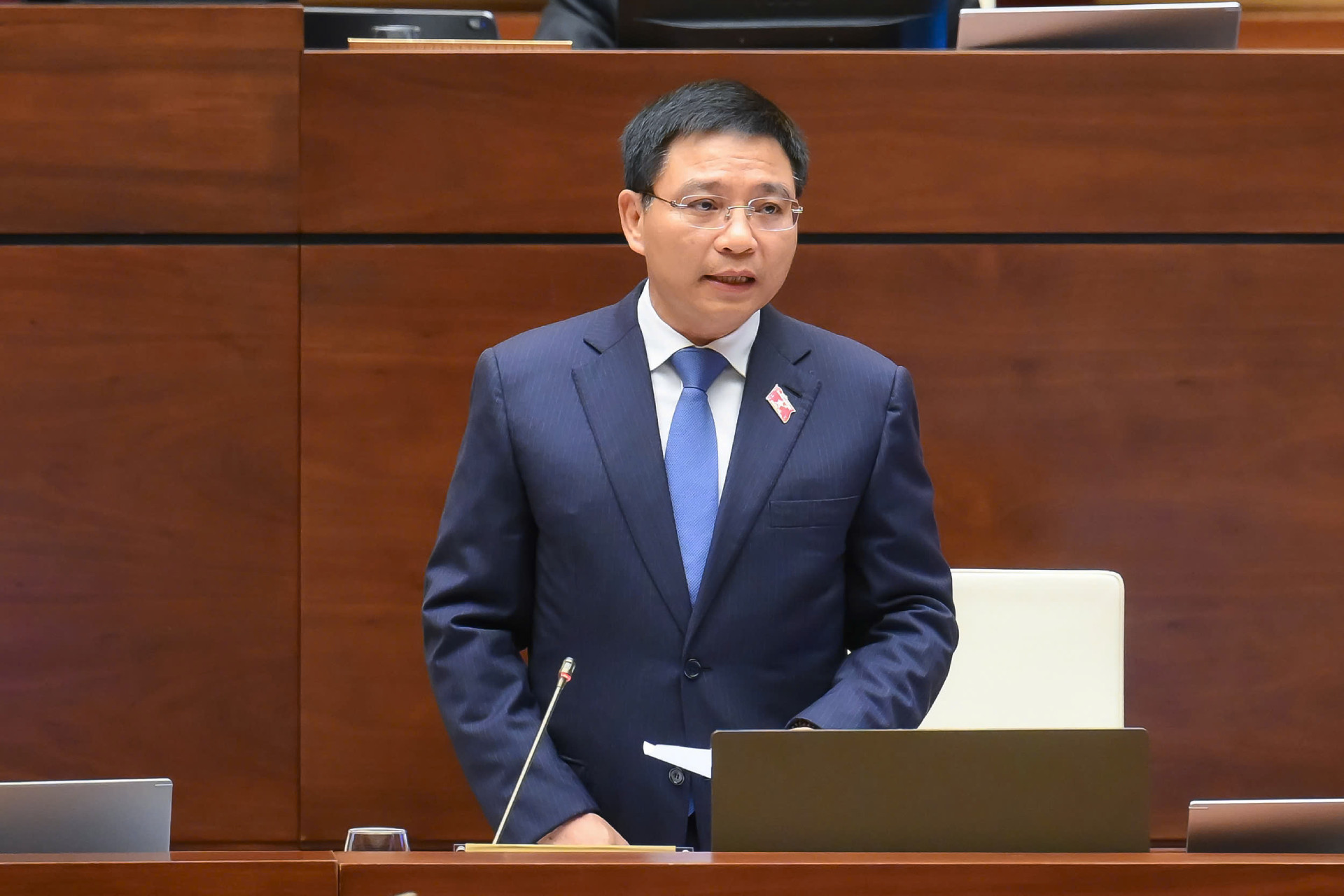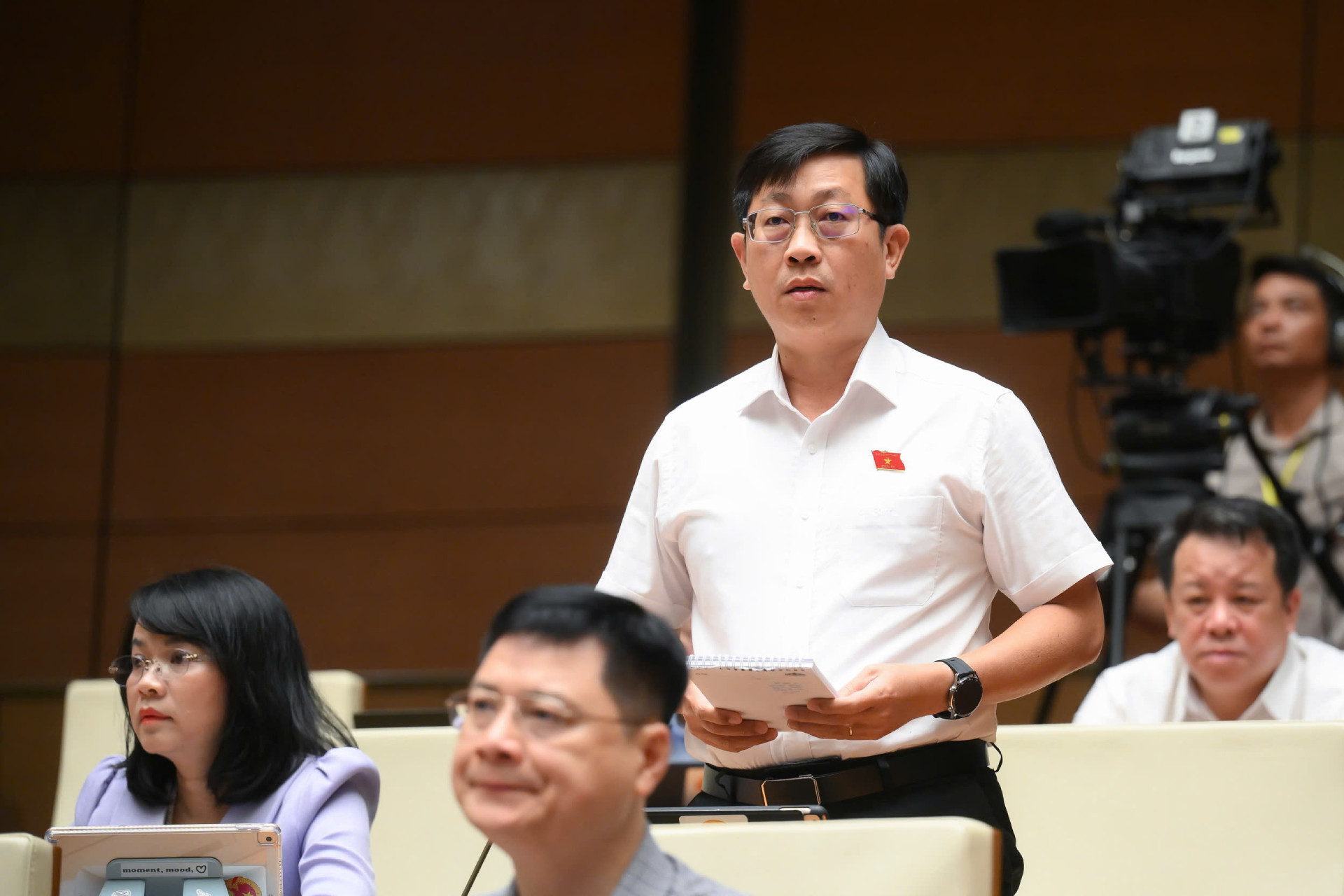Representative Hoang Van Cuong highlighted the impact of abolishing the lump-sum tax on millions of household businesses. Speaking at a June 19 parliamentary session, he noted that households are not resistant to paying taxes but are concerned about procedures and accurate calculations. He asked Finance Minister Nguyen Van Thang what plans the government has to help these businesses adapt.

Finance Minister Nguyen Van Thang answers parliamentary questions. Photo: National Assembly
Minister Thang explained that Vietnam’s tax system is internationally recognized for aligning with global standards, yet some taxes are still collected manually, which hinders transparency. The Politburo and National Assembly have mandated that the lump-sum tax be phased out by 2026.
“While the lump-sum tax worked temporarily, it is now outdated, lacks transparency, and creates inequality among business types. It discourages household businesses from growing into small and medium enterprises,” he said.
Thus, the minister maintained that removing this tax is a sound policy, promoting transparency, fair tax obligations, and business transformation. The Finance Ministry is preparing a synchronized legal and technological framework to ensure ease of compliance and reduce administrative burdens for household businesses.
Minister Thang added that proposed amendments to the Tax Administration Law and the Personal Income Tax Law aim to implement a simplified, transparent tax model with streamlined documentation. The second major solution is to digitalize tax administration, including electronic invoices generated from point-of-sale systems, helping ensure accuracy and efficiency.
The ministry will provide free access to e-tax filing systems, e-invoice software, and accounting software. Special support will be available for less tech-savvy or resource-limited households in the early stages.
Finally, he stressed the need for outreach and training, including clear communication on e-invoicing benefits, hands-on guidance, and legal and accounting consultations to assist household businesses.
E-commerce tax revenue sees sharp rise

Representative Nguyen Huu Thong of Binh Thuan raised concerns about tax enforcement in e-commerce, citing fraud and tax avoidance that disadvantage traditional markets and modern retailers. He asked the finance minister about progress and upcoming measures for managing e-commerce taxation.
Minister Thang said the Finance Ministry has implemented various regulations targeting e-commerce. These include rules on invoices, tax withholding by online platforms, and allowing sellers to authorize platforms to issue e-invoices. Individuals can now use digital ID to register via social media.
Public outreach campaigns and collaborations with domestic and international e-commerce platforms have been key to disseminating these policies. The ministry is also applying advanced technologies, including artificial intelligence, for oversight.
Initial results are promising. The ministry has standardized 95% of population data, enabling data sharing with banks and e-commerce sites. Currently, 158 foreign providers are registered and paying taxes in Vietnam, contributing about 23 trillion VND (approximately 903 million USD). Additionally, 106,000 individual sellers have paid around 1.2 trillion VND (47 million USD) via the national tax portal.
In the first five months of 2025, tax revenue from e-commerce reached over 75 trillion VND (approximately 2.95 billion USD), a 55% increase year-over-year.
Going forward, the ministry will refine definitions of e-commerce activity and clearly identify responsible individuals and organizations. Plans include improving e-tax filing instructions, upgrading the tax portal, accessing data from foreign platforms without a Vietnam base, and using AI to detect tax fraud. The ministry will also review and audit entities earning income from digital platforms.
Tran Thuong - The Vinh